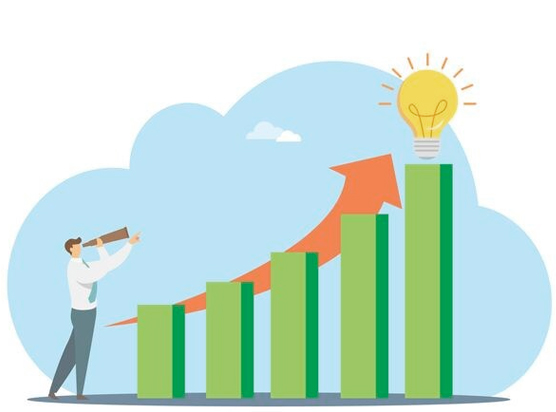The Essential Guide to Commercial Loans for Business Growth and Investment
For businesses looking to expand, acquire new properties, or simply manage their operational cash flow more effectively, commercial loans offer a vital lifeline. These loans are tailored to meet the diverse needs of companies across all sectors, providing the necessary funds for large-scale investments or to bridge financial gaps. This guide will walk you through everything you need to know about commercial loans, from the different types available to how to secure the best terms for your business.
What Are Commercial Loans?
Commercial loans are specialized financial products designed to meet the specific needs of businesses. Unlike personal loans, which are typically used for individual purposes, commercial loans are utilized for acquiring, developing, or upgrading commercial properties, purchasing equipment, or supporting significant business expansions. These loans are typically secured by the assets they are used to purchase, which can also include the business's property or equipment.
Instruction
We have a loan option for you and special features to make sure you get a great deal. In fact, our members save $3,500 on average when they choose us for their mortgage!
1 step
Gather your info in most cases, you’ll need:
Property Address and Value, Desired Loan Amount, Your Income & Assets
2 step
Receive Quote & Submit Docs:
Evaluate Mortgage Quote Received, Submit documents supporting information provided.
3 step
Final Approval & Closing Table:
Receive Final Mortgage Approval , and Schedule Closing with Settlement agent. Collect your Keys. Bingo!
Tips for Choosing the Right Commercial Loan
Choosing the right commercial loan involves several critical considerations:
- Assess Your Needs: Clearly define what you need the loan for and how much you need to borrow. This will help you determine the type of loan that best suits your situation.
- Shop Around: Don’t hesitate to shop around and compare offers from different lenders. Look at not only the interest rates but also the terms, fees, and the flexibility of the loan structure.
- Negotiate: Use any leverage you have, including good credit scores and strong financial projections, to negotiate better terms.
- Professional Advice: Consider consulting with a financial advisor or loan broker who specializes in commercial lending. They can provide valuable insights and help you navigate the complex process of securing a commercial loan.
Evaluating Lender Options
Choosing the right lender is as crucial as selecting the appropriate loan type. When evaluating lenders, consider not only their loan offerings but also their reputation, responsiveness, and understanding of your industry. Some lenders might offer specialized commercial loans that are particularly tailored to sectors such as manufacturing, retail, or real estate. Working with a lender who has a deep understanding of your business's context and needs can provide added value, offering advice and support that goes beyond the financial.
Understanding Loan Costs and Fees
Beyond the principal and interest, commercial loans often come with a range of fees and costs that can impact the overall affordability of the loan. Application fees, origination fees, appraisal fees, and possible prepayment penalties are common. It’s important to fully understand these additional costs before committing to a loan as they can significantly affect your total borrowing cost. Ask for a clear breakdown of all fees and consider them when comparing loan options.
| |
Conventional |
FHA |
Non-Traditional Income |
No Income Investment |
Hard Money |
| Low Rates |
 |
 |
 |
 |
|
| 3-5% Downpayment |
 |
 |
|
|
|
| No Tax Returns / W2 Required |
|
|
 |
 |
 |
| No Income Verification |
|
|
|
 |
 |
| 1-3 Days Financing |
|
|
|
|
 |
| Bad Credit |
|
 |
 |
|
 |
| First Time Homebuyer |
 |
 |
 |
|
 |
| Non-Warrantable Condos & Condotels |
|
|
 |
 |
 |
| |
Get A Quote |
Get A Quote |
Get A Quote |
Get A Quote |
Get A Quote |
Preparing for the Application Process
The application process for a commercial loan can be extensive. Lenders typically require detailed documentation, including business financial statements, tax returns, business plans, and projections. You may also need to provide personal financial information if your business does not have an established credit history. To streamline the process, organize your documents in advance and ensure they are thorough and accurate. Being well-prepared can speed up the approval process and improve your chances of a successful loan application.
Leveraging Commercial Loans for Business Growth
Commercial loans can be used not just for bridging cash flow gaps but also for strategic growth initiatives. For example, a loan could enable the acquisition of a competitor, the purchase of significant equipment, or an expansion into new markets. These strategic investments can transform a business, allowing it to innovate, scale, and become more competitive. Hence, it's important to align your borrowing strategy with your long-term business goals and ensure that every loan taken contributes directly to your business's growth and sustainability.
Mitigating Risks Associated with Commercial Loans
While commercial loans provide critical funding, they also introduce risk, primarily through increased debt and the obligation to meet repayment schedules regardless of business performance. To mitigate these risks, maintain a conservative approach towards borrowing. Assess the potential return on investment for any funded initiative and ensure it outweighs the costs of the loan. Additionally, keep a contingency plan in place to manage loan repayments during periods of lower business revenue.
These added paragraphs offer a deeper understanding of the intricacies involved in commercial loans, ensuring businesses can make informed decisions that align with their financial strategies and growth objectives.
Choose a mortgage individually
See today's best mortgage rates, and compare the total cost over the initial term of different mortgages. A couple of disclaimers: first, we can't guarantee you'll be eligible for every deal in this table. Second, deals change constantly, so what you see here might not be available by the time you apply
Leveraging Technology in Securing Loans
Advancements in financial technology have revolutionized the way businesses can access and manage commercial loans. Many lenders now offer online platforms that simplify the application process, provide tools for managing loans, and offer direct access to customer service. These platforms often allow businesses to quickly compare different loan offers, calculate potential repayments, and understand detailed terms—all from a digital interface. Utilizing these technologies can save time, reduce paperwork, and provide transparency, allowing business owners to make better-informed decisions with greater efficiency.
The Role of Credit in Commercial Lending
Creditworthiness plays a pivotal role in securing a commercial loan. Businesses with strong credit scores often enjoy lower interest rates, better loan terms, and access to larger loan amounts. Building and maintaining a strong business credit profile involves managing current debts responsibly, paying creditors on time, and keeping credit utilization low. Additionally, regularly reviewing your business credit report for inaccuracies and resolving any discrepancies can help improve your credit score over time, thereby enhancing your loan eligibility.
Strategic Refinancing of Commercial Loans
Refinancing can be a strategic move for businesses with existing commercial loans. It involves replacing an old loan with a new one, typically with more favorable terms, such as a lower interest rate or a different repayment schedule. This can reduce monthly payments, free up cash flow for operational needs or growth initiatives, and potentially shorten the loan term. Businesses considering refinancing should weigh the benefits against any potential costs, such as prepayment penalties or additional fees, and consider the timing to maximize the financial advantages.
Conclusion
Commercial loans can be a game-changer for businesses poised for growth or in need of financial restructuring. By understanding the different types of loans available and preparing a strong application, you can secure the funding needed to propel your business forward. Remember, the right loan should align with your business goals, provide manageable terms, and support your company's long-term financial health.
FAQ
What is a commercial loan?
A commercial loan is a type of financing that is extended to businesses to help them fund large capital expenditures or cover operational costs that they could not afford otherwise. These loans are typically used for purchasing real estate, acquiring another business, investing in equipment, or expanding operations.
How do I qualify for a commercial loan?
To qualify for a commercial loan, businesses generally need to have a strong credit history, a solid business plan, and sufficient collateral to secure the loan. Lenders will also look at your company's financial statements, profitability, and cash flow to assess your ability to repay the loan.
What are the different types of commercial loans available?
Several types of commercial loans are available, including term loans, lines of credit, SBA loans, and commercial real estate loans. Each type serves different business needs, from providing temporary cash flow relief to funding long-term investments.
What documents are required to apply for a commercial loan?
The documentation required can vary by lender and loan type but generally includes the business’s financial statements (balance sheet, income statement, cash flow statement), tax returns, business plans, and personal financial information of the business owner(s).
Can I use commercial loans to buy property for my business?
Yes, commercial real estate loans are specifically designed for purchasing properties such as offices, warehouses, or retail spaces. These loans often have longer amortization periods and can cover a significant portion of the property's purchase price.
What should I consider before applying for a commercial loan?
Before applying, consider your business’s current financial health, the purpose of the loan, and how the loan will impact your business in the long term. It’s important to assess the full cost of the loan, including interest rates and any fees, and ensure that the loan structure aligns with your business's cash flow and growth objectives.




